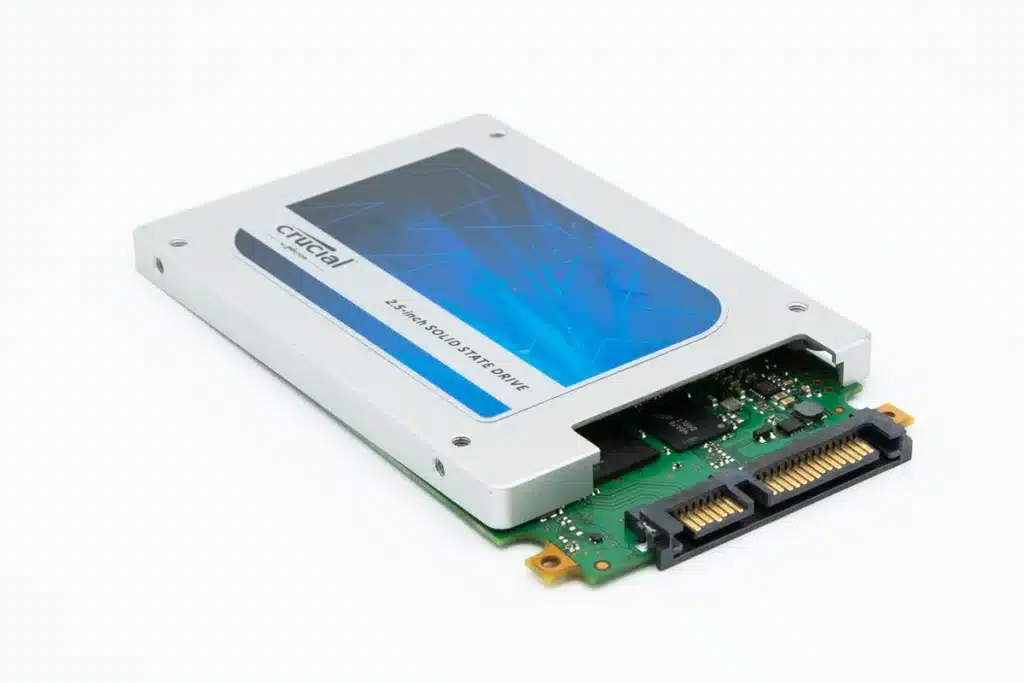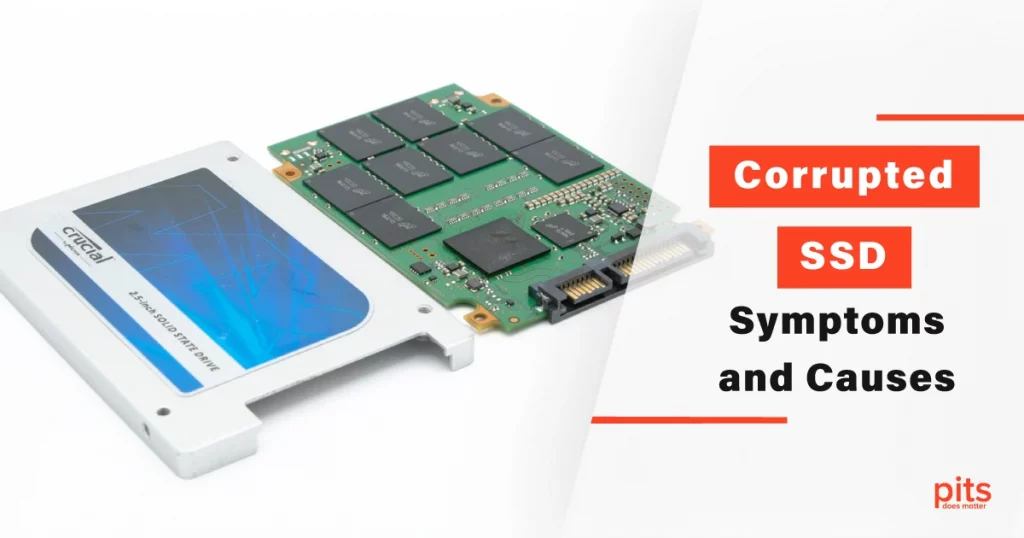Solid-state drives (SSDs) are popular types of storage devices used in modern computers and other electronic devices. Compared to traditional hard drives, SSDs are faster, more reliable, and consume less power. However, like any other technology, SSDs are not immune to failure or corruption, which can lead to data loss. In this post, we will discuss the causes of corrupted SSDs, prevention methods, and recovery options for lost data.
Can SSD Be Corrupted? Common Causes
The speed, reliability, and durability of Solid State Drives (SSDs) have made them increasingly popular in recent years. Nonetheless, SSDs are not impervious to data corruption like any other data storage device. Despite being generally more resistant than traditional hard disk drives (HDDs), SSDs are still vulnerable to various factors that can cause data corruption or drive failure. Here are the some common causes of SSD corruption.
Bad Sectors
One of the most common causes of SSD corruption is bad sectors. Bad sectors are physical defects on the drive’s surface that prevent it from reading or writing data properly. If an SSD has bad sectors, it can cause data loss or corruption when the drive attempts to read or write data to the affected area.
Bad blocks can occur due to a variety of reasons, such as manufacturing defects or physical damage to the drive. Unfortunately, bad sectors cannot be repaired, and the only solution is to replace the SSD.
Power Failure
Power failures or sudden shutdowns are another common cause of SSD corruption. When a power failure or sudden shutdown occurs, the SSD can be in the middle of writing data to the drive. If this happens, the data can become corrupted or lost. To prevent this, it is essential to use a surge protector or an uninterruptible power supply (UPS) to protect the SSD from power failures or sudden shutdowns.

Cable and Driver Maintenance
A faulty data cable or an outdated driver can also cause data corruption on an SSD. If the data cable connecting the SSD to the motherboard is faulty, it can cause data transmission errors and lead to data corruption.
Similarly, an outdated driver can cause compatibility issues with the operating system, leading to data loss or corruption. To avoid this, it is crucial to ensure that the SSD’s driver is up-to-date, and that the data cable is in good working condition.
Data Retention Issues
Extended periods of non-usage can cause data retention issues for SSDs. With time, the memory cells’ charge may decay, which can result in data corruption if not refreshed regularly. Nonetheless, modern SSDs are equipped with appropriate measures to address this problem.
Overheating
The performance and lifespan of an SSD can be negatively impacted by excessive heat. Elevated temperatures can accelerate the degradation of memory cells and heighten the likelihood of data corruption. Maintaining adequate cooling and ventilation within the system can assist in preventing overheating.
Virus and Malware
Lastly, malware or virus attacks can also cause data loss or corruption on an SSD. If a virus infects the SSD, it can corrupt or delete data on the drive. To avoid this, it is essential to use antivirus software and keep it up-to-date. It is also important to avoid downloading files from untrusted sources or clicking on suspicious links.
Prevention Methods Against Corrupted SSD
Preventing SSD corruption is crucial for maintaining the integrity of your data. Here are some ways to reduce the risk of SSD failure:
Keep your operating system and SSD drivers up to date. Regularly updating your operating system and SSD drivers can help prevent compatibility issues and improve performance.
Avoid sudden power outages. Use a surge protector or a UPS to protect your SSD from power failures and sudden shutdowns.
Use an external hard drive or a cloud storage service for backups. Backing up your data regularly to an external hard drive or cloud storage service can help minimize data loss in case of an SSD failure.
Avoid writing data continuously to the SSD. While SSDs are designed for high-speed data transfer, continuous writing of data can cause wear and tear on the drive, leading to early failure.
Check for read-only mode. If you are having trouble accessing your SSD, check if it is in read-only mode, which prevents data from being written to the drive.
Corrupt SSD Recovery with PITS
PITS Global Data Recovery Services offers exceptional data recovery for solid-state drives across various facilities throughout the United States.
Our services leverage the most up-to-date data recovery tools, advanced hardware, a certified cleanroom, skilled engineers, and high-precision soldering stations to recover data from any brand or model of SSDs.

Our certified data recovery services for solid-state drives offer a secure solution for both logical and physical data loss. With multiple facilities located throughout the United States, we can assist with data recovery no matter where you are located.
Benefits of Using Our Services

If you’re facing a data loss situation, don’t hesitate to contact us. Our 24/7 data recovery services are available to you, 365 days a year. Let us help you recover your precious data today.

We start the recovery process with a risk-free evaluation. Our technicians estimate reasons for data loss and the level of damage. Based on it, we select the most suitable recovery strategy.

With years in the data recovery industry, our company supports the highest customer satisfaction rate. We do everything to provide a positive experience for our clients.

During our remote customer file verification session, you will thoroughly review all necessary documents and records to ensure accuracy and compliance.

We offer data recovery services from over 50 locations across the US. This means that no matter where you are located, you can access our services to recover the data.

With our certified data recovery services and 99% success rate, we are confident that we can recover your precious data and get you back up and running in no time.
PITS engineers utilize advanced technology and operate in specialized facilities to perform data recovery. Our team continuously upgrades recovery equipment to ensure access to the latest tools and state-of-the-art labs. Rest assured that your corrupted, dead, or damaged SSD is in the capable hands of our highly skilled specialists.
Contact us today instead of using data recovery software to learn more about our SSD data recovery services. You can provide details about your data loss scenario using the form below, and our team will promptly reach out to you.
Frequently Asked Questions
Can an SSD get corrupted?
Yes, like any other storage device, an SSD can get corrupted due to various reasons, such as power failure, firmware issues, physical damage, or a virus attack.
Can you fix a corrupted SSD?
It depends on the type and extent of corruption. Some minor issues can be fixed with software tools or by formatting the drive. However, in most cases, professional data recovery services may be required to recover the data from a corrupted SSD.
Is corrupted SSD repair possible?
Yes, in some cases, corrupted SSD repair is possible. However, it is important to note that attempting DIY repairs can worsen the damage and lead to permanent data loss. It is best to seek professional help for SSD repair and data recovery.
What is corrupted SSD symptoms?
The warning signs of a corrupted SSD can vary, but some common signs include slow performance, missing or corrupted files, frequent error messages, unusual sounds or vibrations, and an inability to boot the system. If you experience any of these symptoms, it is important to back up your data immediately and seek professional help.
